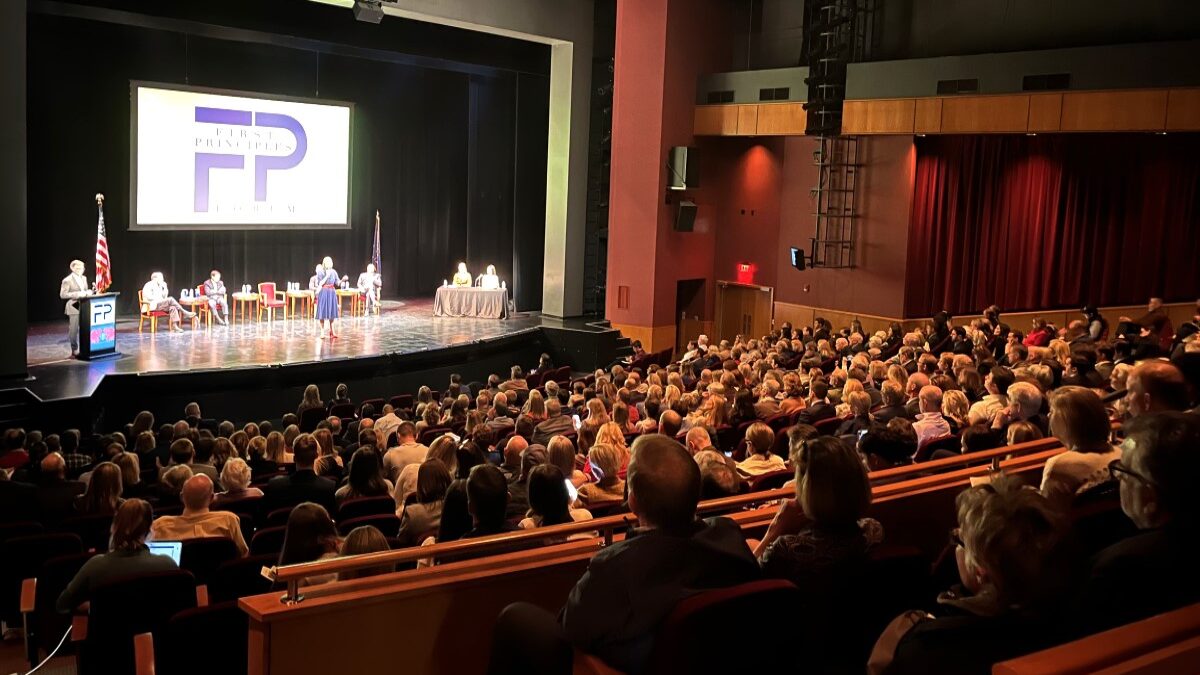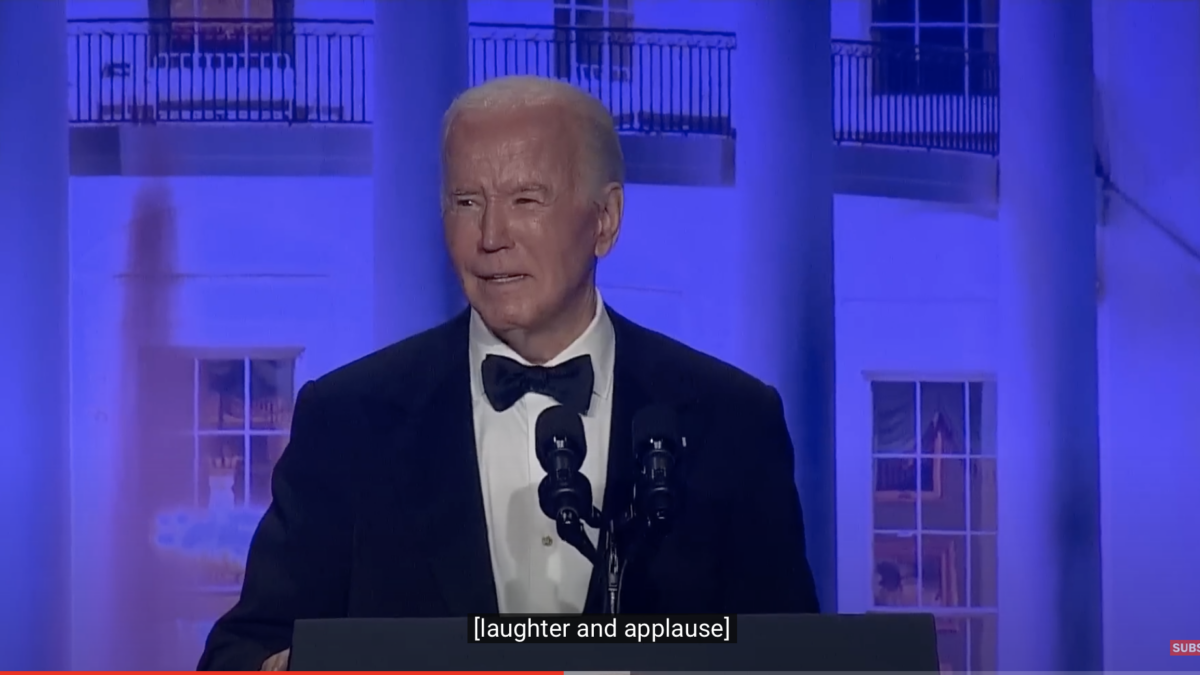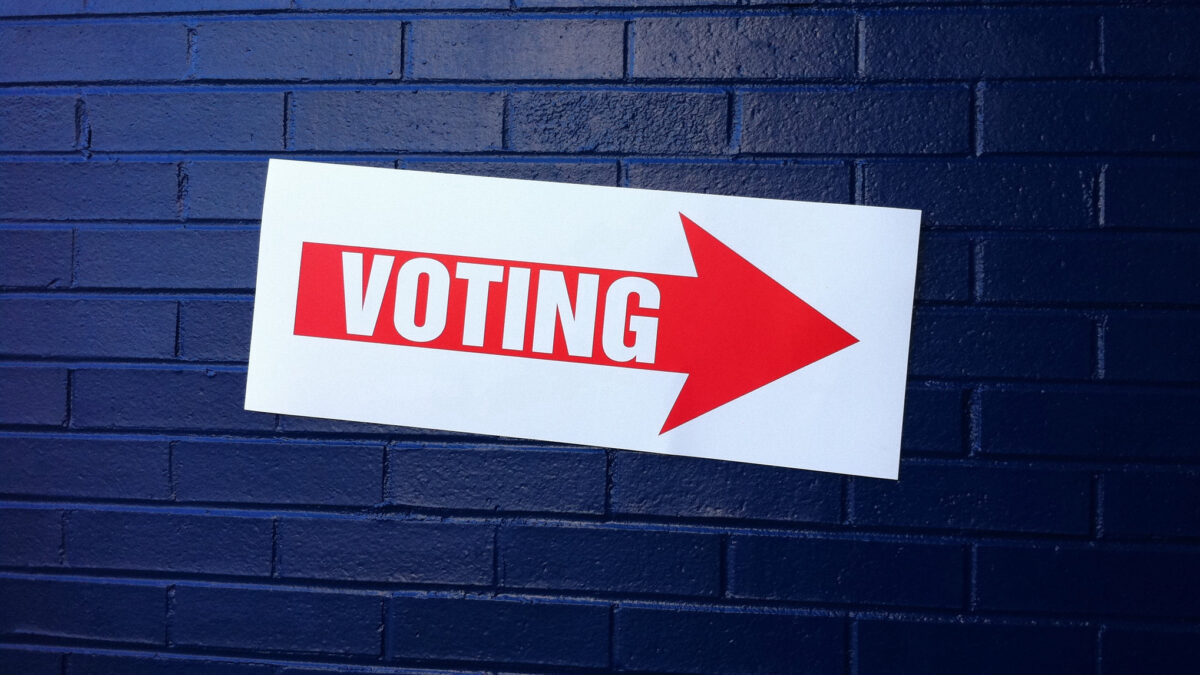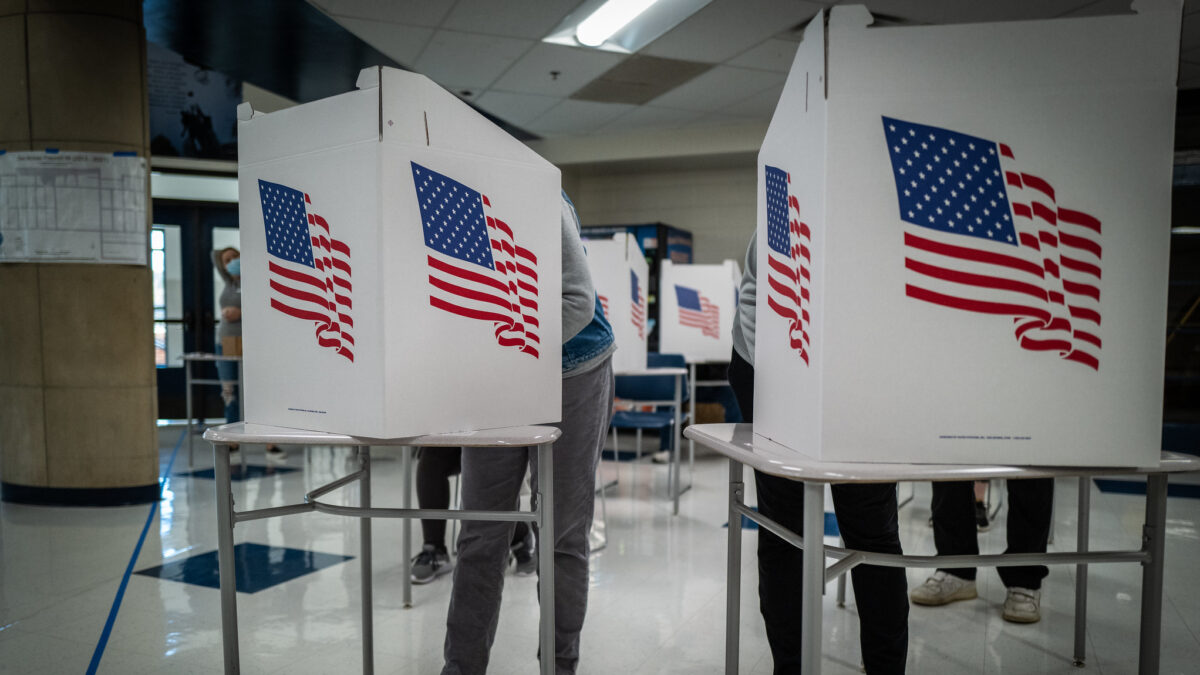While massive media attention lights up this year’s presidential race, key races are taking place downballot. Two of the 11 governor’s races on 2024 ballots are currently rated toss-ups: North Carolina and New Hampshire. Eight of the 11 governor’s mansions up for grabs this year are currently Republican-controlled.
State-elected positions such as governor, state attorney general, senator, and House representative are crucial to checking federal abuses of power. A coalition of approximately half the nation’s attorneys general, for example, has been challenging Biden administration power grabs with big lawsuits against mass censorship, rules requiring woke investments, and environmental communism.
Democrats are on the defensive in the Senate, with 10 Republican senators, three independents who support Democrats, and 20 Democrat senators up for election this year.
“Republicans need just one or two seats to reclaim the [Senate] majority — depending on which party wins the White House. Sen. Joe Manchin’s retirement almost certainly puts West Virginia in the GOP’s column, and Democratic incumbents are also up for reelection in the red states of Ohio and Montana. Other races to watch: Pennsylvania; Wisconsin; Michigan, Nevada and Arizona,” says Politico’s Ally Mutnick.
It’s not just whether Rs gain in the Senate, of course, but what they do while there. For some 60 years, Republican voters have endured capitulation and betrayal from the politicians they send to high office. In 1964, Phyllis Schlafly spoke for millions of Republican voters demanding “a choice, not an echo” from our representatives. We still demand that today, and it helps account for Donald Trump’s vociferous support.
Politicians are notoriously slippery. Many avoid tough interviews — which come from right media, not corporate. When a real question slips through, they dodge. Yet it remains crucial that they be put on the record as one way to hold them accountable for their use of the public trust.
What should the public learn about the individuals asking for positions of great public responsibility? As co-moderator of a Jan. 26 forum between the five Republican candidates for Indiana’s governor, I and other First Principles Forum advisers worked for weeks to craft questions. We couldn’t fit into 70 minutes of answer time even a quarter of those we wanted to ask and those voters sent in as suggestions.
Strikingly, the five candidates repeatedly repudiated the policies of the current governor sharing their own party, including: his self-extended emergency powers and Covid-19 lockdowns; instillation of a diversity, equity, and inclusion cabinet position; decommissioning of coal plants in obedience to the Biden EPA; and failure to specifically commit National Guard troops to assist Texas in defending the U.S. border. Two of the five candidates implicitly trashing Gov. Eric Holcomb on stage have held positions in his cabinet, one as his lieutenant governor.
Here, to assist any voter or reporter helping vet those who seek power in our eroded republic, are all the questions we did ask, plus many we couldn’t fit in. They’ve been edited to apply outside of Indiana, to any state.
Brief, Specific Questions
- Do you support delivering the full amount of every child’s K-12 funding into an education savings account his parents can use at a public, private, or home school, or a blend of school options?
- Would you remove state funding from state universities, grant recipients, and K-12 schools that violate the U.S. Constitution’s ban on all forms of state-sponsored racial hatred such as preaching “white privilege” or supporting terrorist groups, such as Hamas?
- Do you support raising government revenue through gambling, which preys upon the poor and people’s base compulsions?
- A question from Aaron Renn: In 2020 after the George Floyd riots, the CDC declared racism a public health crisis. “Should all [state] public health entities be legally prohibited from using their public employment to infuse a woke agenda into policies and programs they oversee, including non-medical social topics such as gun rights, racism, and climate change”?
- Do you support allowing citizens and companies under the control of China, North Korea, and other countries who want to undermine the U.S. to buy land in this state?
- If a federal grant requires a taxpayer-funded entity, including a school, locality, or state agency to provide services or a benefit to an individual solely based on race, should state law prohibit the entity from accepting the grant funds?
- Are there any conditions the federal government could place on grants or funds that this state should not accept in exchange for the money — for example, racial quota requirements, demands the state shut down low-cost power, or demands of teaching transgender ideology in schools?
- Do you support deregulating teacher licensing so that citizens with subject-matter degrees and experience can bring their expertise to classrooms unimpeded by that regulatory barrier, which research shows does not improve teacher quality?
- Do you support or oppose any sort of health passport or other means of implementing a social credit system tied to people’s health and economic decisions?
- Do you believe illegal aliens should be entitled to any form of financial or social welfare support from taxpayers, including legal support such as driver’s licenses?
- Should the state legislature allow school and public libraries to purchase books that depict graphic sex scenes, especially books that describe and picture sex acts such as rape, incest, and pedophilia?
Broader Questions
- Context: The U.S. Supreme Court recently affirmed that race-based government policies, such as affirmative action, clearly violate the Constitution. Depending on the poll, between 65 and 85 percent of Americans oppose using race as a criterion for school and job admittance. Florida Gov. Ron DeSantis has been a national leader in improving public curricula while ridding K-12 schools of the ideology pushing race-based treatment of Americans, known as diversity, equity, and inclusion, or DEI.
Question: Would you emulate DeSantis’ pace-setting education policies to improve curricular content and school leadership, or do you support allowing DEI governance inside this state’s businesses and schools? Please explain your reasoning, including what equity means to you.
- Context: Since the 2020 election, citizens’ trust in the election system is at an all-time low. The Heritage Foundation has vetted state election laws and points out how each state can improve theirs.
Question: Would you make it a policy priority to require proof of citizenship for voter registration? Also, should this state return voting to a single day and eliminate mail-in voting for all who physically can vote in person?
- Context: Federal and state courts are increasingly rejecting constitutional jurisprudence, which leads to a lawless and politicized justice system.
Question: As governor, what criteria will you use to appoint judges? What can this state do about the fact that the professional legal institutions are extremely politicized to the left, affecting the equal justice Americans have a constitutional right to expect from their courts?
- Context: As state executive, the governor has the duty to hold the line against federal overreach, which often requires taking the federal government to court. State agencies are often run by individuals who support the federal government’s attempt to force heavy-handed regulations that increase costs on businesses and infringe on citizens’ civil liberties.
Question: If the state attorney general challenges a federal regulation or action, how would you require your state agencies to cooperate with the attorney general with that challenge?
- Context: The stated purpose of economic development agencies is to grow the economy and create well-paying jobs. Yet they are often rife with cronyism and outright corruption, rewarding businesses that donate to the politicians in power and squandering public funds on projects that don’t pan out as promised.
Question: Is it right to use taxpayer money to reward favored economic activity and why? And what can state government do to unleash citizens’ ability to better themselves and their families economically?
- Context: Many state lawmakers wish to expand government preschool and daycare programs. Studies show daycare increases child distress, teen violence, anxiety, hyperactivity, and depression; spiked later criminal convictions in Quebec by 22 percent; erodes children’s academic achievement long-term; and worsens family relationships. Only 11 percent of parents want their children in a daycare center full-time, according to a 2021 Institute for Family Studies survey.
Question: How would you shift state workforce priorities to put the needs of families, especially children, above the desires of businesses to offer fewer benefits and wages that can’t sustain a family on one income?
- Context: Many states are experiencing increasing rates of power outages as grids shift to weather-dependent energy sources like wind and solar. Most states’ power grids are interconnected with those of other states, making red states vulnerable to blue states’ climate extremism. The Biden EPA is demanding that states shut down reliable, low-cost energy despite the outages that has already caused.
Question: What is your plan to provide citizens with the reliable, locally controlled, and low-cost energy necessary to fuel economic growth and widespread prosperity?
- Context: Health care prices have risen drastically in the past several years, over already massive cost inflation over the past half-century. Medical special interests like big pharma are some of the top-spending political players in most states.
Question: What should the governor and state legislature do to control health care costs?
- Context: The economic and physical harms from lockdown policies are still being felt nationwide, especially for young Americans, many of whom will never catch up on the learning lost in those three affected school years.
Question: Should emergency executive orders be limited by law to a maximum of 30 days? Under what conditions do you think any executive emergency order is necessary and justified?









